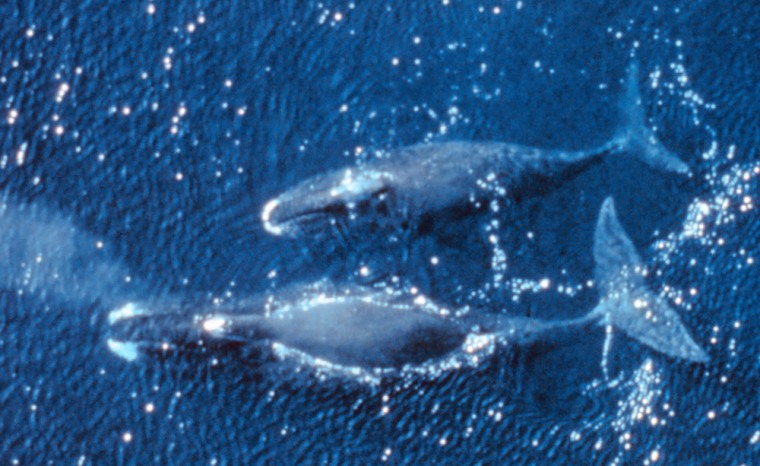A federal judge has granted ConocoPhillips Alaska Inc. a temporary stay over governmental requirements that the company monitor the effects of seismic oil exploration on bowhead whales over a large swath of the Chukchi Sea.
U.S. District Judge Ralph Beistline issued the stay late Monday pending a final resolution.
The 3,030-square-mile area is too large and impractical for the company to monitor, Conoco said in its lawsuit filed last month against the National Marine Fisheries Service.
Permits issued by the fisheries service require ConocoPhillips to stop seismic work when sound levels exceed 120 decibels in areas where four or more cow/calf pairs are found during the fall migration.
In the lawsuit, ConocoPhillips asked the court to find that NMFS had violated the Marine Mammal Protection Act for imposing requirements that Conoco called "arbitrary."
In his order, Beistline said ConocoPhillips "raised a 'serious question' regarding the propriety of the additional requirements, which is sufficient to justify the interim relief requested."
ConocoPhillips argued in its lawsuit that past exploration activity has not adversely affected whales. Beistline wrote that the best science available seems to support ConocoPhillips' argument.
"Moreover, a 'balancing of the hardships,' including the danger associated with additional monitoring requirements, tips clearly" in ConocoPhillips' favor, he wrote.
Agency, activist reactions
Connie Barclay, a NMFS spokeswoman, said federal officials were evaluating the judge’s order to determine their next step. “We’re trying to digest what the judge has said and what this means for us,” she said.
NMFS has said that the population could be significantly harmed if seismic vessels were to adversely impact a large group of the marine mammals during critical life cycle periods, such as migration and concentrated feeding.
Environmental advocates called it a major setback for the noise-sensitive whales, which migrate through the Beaufort and Chukchi in the summer and autumn, the same seasons when the oil explorers will be using sonic devices in the water.
“They’re just going to be out there blasting away, without monitoring, essentially,” said Rick Steiner, an Anchorage-based marine biologist and environmental activist who has defended the 120-decibel threshold.
Other companies didn't challenge
ConocoPhillips is one of three companies with permits to conduct seismic tests in the Chukchi Sea, a potentially oil-rich region of Alaska’s Arctic Ocean.
"We appealed the permit conditions because we do not believe there is scientific support for the requirement to monitor for whales in an area 2,000 times the size of monitoring zones imposed in the past," ConocoPhillips spokeswoman Dawn Patience said in a prepared statement. "We will continue to work with the North Slope Borough Wildlife department and other agencies to gather research data that will help to improve our understanding of the arctic environment."
Two other companies, Shell Offshore Inc. and GX Technology Corp., have permits to conduct seismic tests in the Chukchi this summer and fall. Shell is also permitted to conduct seismic tests in the Beaufort.
Neither of those companies challenged the new regulations.
